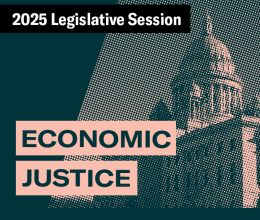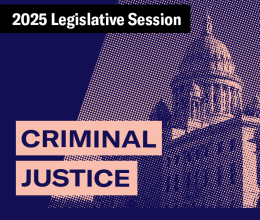Dozens of medical professionals and organizations working to stem the opioid crisis in Rhode Island today called on the state Senate to reject legislation sponsored by the Attorney General that would impose up to a life sentence on individuals who provide an unlawful controlled substance to a person that results in that person’s death, regardless of culpability.
In a letter to Senators, the organizations and professionals argued that passage of the bill would have a “deleterious effect” on the State’s “evidence based public health and safety efforts” to address the opioid crisis, and would ensnare low-level drug dealers, not predatory drug traffickers. The legislation, approved last week by Senate Judiciary Committee, is scheduled for a Senate vote tomorrow. The bill was passed in amended form, but the signers noted they had no chance to offer comments on the revised legislation, which they say is just as problematic as the original version.
Among the fifteen organizational signatories to the letter are the Substance Use and Mental Health Leadership Council of RI, Mental Health Association of RI, Center for Prisoner Health and Human Rights, RICARES, and Protect Families First. Individual signatories, numbering more than 60, include Michelle McKenzie, who is Senior Project Director at the Miriam Hospital and Director of Preventing Overdose and Naloxone Intervention (PONI); Dr. Josiah “Jody” Rich, Infectious Disease physician and Director of the Center for Prisoner Health and Human Rights; and Dr. David Lewis, Founder of the Brown University Center for Alcohol and Addiction Studies.
Excerpts from the letter appear below:
[The amended bill] requires that the drug be provided “in exchange for anything of value.” But it is common for people who use drugs to sell and trade drugs to support their addiction. Other times, there are small exchanges of money. The Attorney General’s Office testified that it is not the intent of the bill to prosecute low-level dealers or people who use drugs. However, the language . . . does not protect these categories of individuals from prosecution. In fact, the [amended bill] exponentially widens who may be held culpable, with no attempt to focus on high-level drug traffickers.
[A] drug user can face up to life in prison for distributing a substance to a friend that may have been only a small factor in the friend’s death or that the person had no idea was contaminated. Not only is it poor policy to leave such broad prosecutorial discretion to law enforcement, it sends a chilling message to the community. We know, based on decades of criminal justice based drug policy, that harsher penalties do not decrease drug using activity. So, this bill’s disturbing message will not decrease drug use, nor drug trafficking – the economics ensure this – but it will further marginalize people who use drugs and increase their fears.
The letter concludes: “Use of a public health approach, not lengthy criminal sentences for users and small-time dealers, is essential for our state’s ability to continue to make headway on this crisis.” The letter asks that the bill be sent back to committee for further consideration and amendments.




